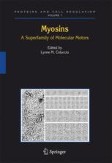Search
Search Results
-
Identification of novel missense mutation related with non-syndromic sensorineural deafness, DFNA11 in korean family by NGS
BackgoundHereditary hearing loss is one of the most common genetically heterogeneous defects in human. About 70% of hereditary hearing loss is...

-
The applications of CRISPR/Cas-mediated genome editing in genetic hearing loss
Hearing loss (HL) can be caused by a number of different genetic factors. Non-syndromic HL refers that HL occurs as an isolated symptom in an...

-
Biallelic mutations in pakistani families with autosomal recessive prelingual nonsyndromic hearing loss
BackgroundNonsyndromic autosomal recessive hearing loss (DFNB) is an etiologically heterogeneous disorder group showing a wide spectrum of onset ages...

-
Analysis of two Arab families reveals additional support for a DFNB2 nonsyndromic phenotype of MYO7A
Variants in the head and tail domains of the MYO7A gene, encoding myosin VIIA, cause Usher syndrome type 1B (USH1B) and nonsyndromic deafness (DFNB2,...

-
Functional characterization of the human myosin-7a motor domain
Myosin-7a participates in auditory and visual processes. Defects in MYO7A , the gene encoding the myosin-7a heavy chain, are causative for Usher...

-
Myosin XVA
Mutations of MYO15A are associated with deafness in humans. In the shaker 2 mouse (Myo15a sh2), a missense mutation in the motor...
-
Hearing molecules: contributions from genetic deafness
Considerable progress has been made over the past decade identifying many genes associated with deafness. With the identification of these hereditary...
-

-
Autosomal and X-Linked Auditory Disorders
Our conceptual thinking about hearing is confined, in part, by the “deafness” genes that have and have not identified. The proper development of the...
-

-
Mice as Models for Human Hereditary Deafness
There is now a large number of mouse mutants with hearing and/or balance defects available for investigating the reasons for the impairment, and...
